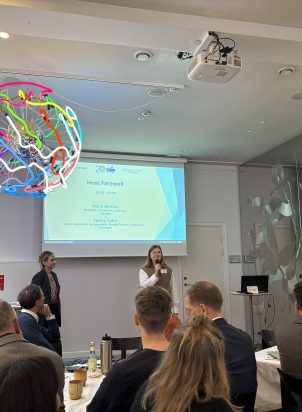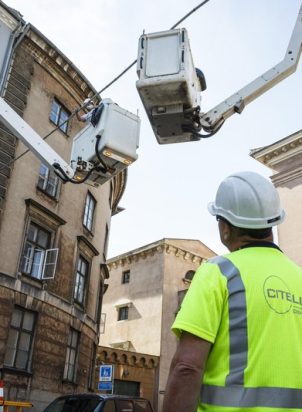Stopping environmental degradation through innovative production and consumption patterns has never been as high on the agenda as it is now. Much attention is drawn to youth who are breaking old habits and introducing new ways to accelerate the green transition. But what has their journey been like? What are the challenges and opportunities to develop such ideas further? These and many other questions and issues have been discussed at BeUBio panel discussion this week.
The event held on September 9th hosted 5 panellists from Norway, Lithuania, Sweden and Finland. The panel discussed inspiring cases of young people who are involved in circular-economy businesses across the Baltic Sea Region, as well as the perspectives from a municipal authority and entrepreneurship education.
One of the businesses was Loopfront, a Norwegian company that aims at reducing construction sector waste by offering companies ways to inventory, track, reuse building materials. The second company was Nando, a Lithuanian company supplying advanced agricultural additives in a swift move towards green transition.
Södertälje municipality shared how a municipal authority can coordinate actions to make a substantial impact on the production chains, in this case food production (MatLust). Finally, a representative from Junior Achievement Finland showcased how youth entrepreneurship attitudes are been generated by linking entrepreneurship skills and tools into education programmes.
„The key take-away from this panel discussion was that not everything is roses, and not everyone gets into the ‘green fever’ out of principle. Many change their practices because of a financial incentive (e.g. savings, and economic profits) or because of regulatory reasons. For instance, EU regulation makes it mandatory for agriculture to reduce significantly mineral fertilizers, so providers need to find alternatives. In the construction sector, municipalities play an important role as they own and build many buildings, so they need to lead by example“, says Research Fellow Alberto Giacometti, BeUBio project‘s coordinator.
Another important learning from the event is that skills related to entrepreneurship need to become more widespread in society and education. Many people are foreign to it or afraid of what it takes to start a business. But an overwhelming message from panellists is that one does not need to be an expert and will definitely not know everything what takes to start a business. But it is important just to try, without fear of failure.
The BeUBio project aims to promote youth involvement across the Baltic Sea Region for transition to a bio-based economy, and create synergies with other actors and initiatives addressing the United Nations Sustainable Development Goals. The project gathers young people working in various sectors connected to the bio-economy.
Watch the recording of the webinar here.
Find inspiring stories of bio-economy business lead by young entrepreneurs here.






